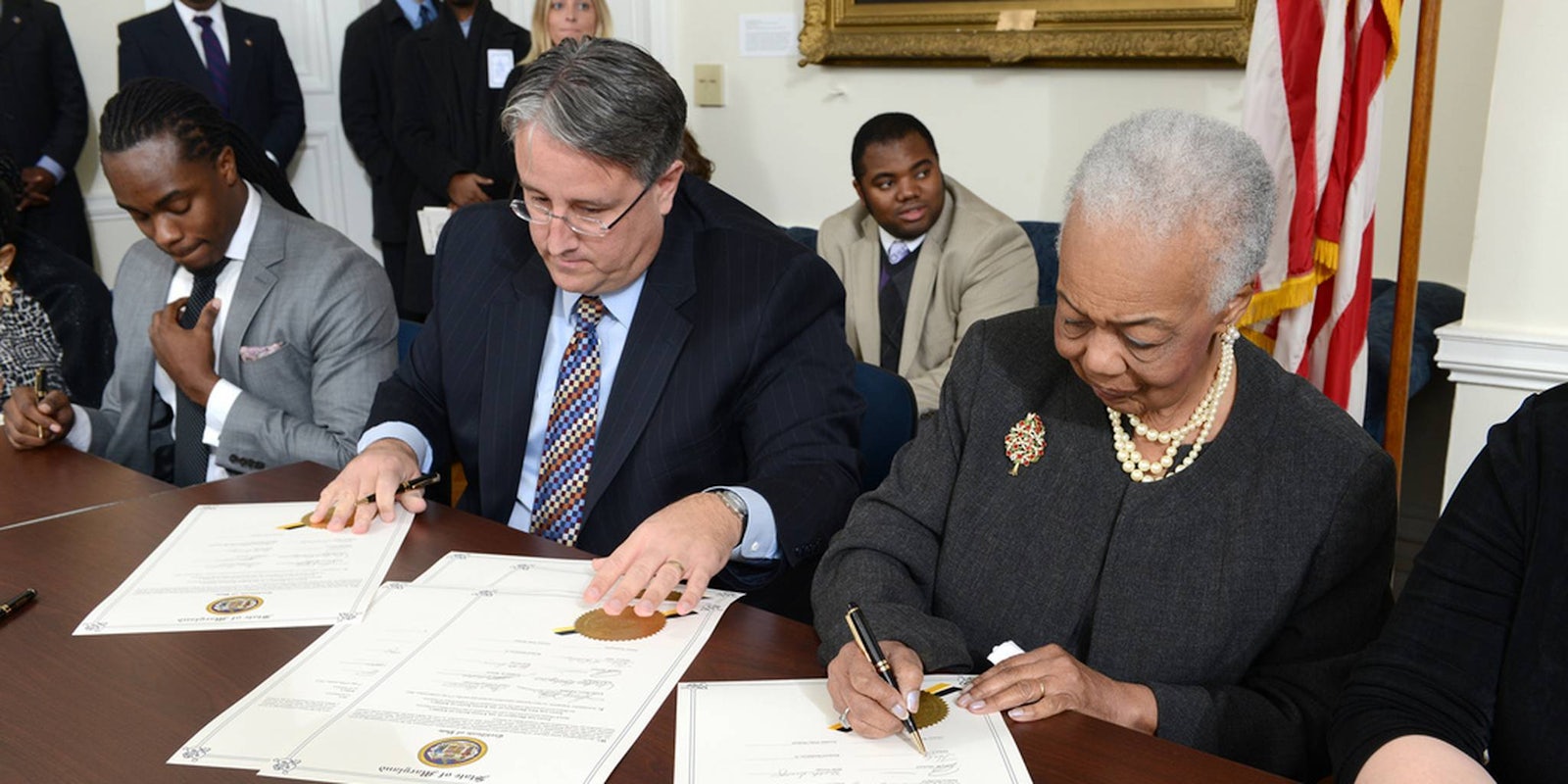Americans did not technically pick the president when they voted on Election Day. Instead, they picked the electors who will cast the official Electoral College ballots for Donald Trump or Hillary Clinton today.
The Electoral College, a group of 538 individuals that includes everyday Americans and state and local party officials, will gather on Monday to elect the next president.
How does the Electoral College vote?
According to the Congressional Research Service:
The electors almost always meet in the state capital, usually in the capitol building or state house itself. They vote “by ballot”—paper ballot—separately for President and Vice President. At least one of the candidates must be from another state, a provision retained from the original constitutional requirement; as noted previously, this was intended by the founders to promote the selection of nationally renowned candidates, and to prevent the electors from selecting exclusively “native sons.”
The results are then endorsed, and copies are sent to the following officials: the Vice-President, the state secretary of state, the Archivist of the United States, and the judge of the federal district court in which the electors met.
The electors then adjourn, and the electoral college ceases to exist until the next presidential election.
What time does the Electoral College vote?
That varies by state to state, but most are choosing to meet in the early or mid-afternoon on Monday. Many states are livestreaming the Electoral College voting process.
Here’s a list of the states livestreaming their voting sessions, with links to watch along:
- Alaska
- Arizona (Senate & House)
- Arkansas (House & Senate)
- California
- Connecticut
- Florida
- Georgia (House & Senate)
- Idaho
- Indiana (House & Senate)
- Iowa (Senate & House)
- Kentucky
- Louisiana
- Maryland
- Massachusetts
- Michigan
- Mississippi
- Missouri
- Montana
- Nebraska
- Nevada
- North Carolina
- North Dakota
- Ohio
- Oklahoma (Senate & House)
- Pennsylvania
- South Carolina (Senate & House)
- South Dakota
- Tennessee
- Texas (Tentative)
- Utah
- Virginia
- West Virginia (Senate & House)
- Wisconsin
- Wyoming (House & Senate)
When will we know the Electoral College results for 2016?
Not much happens until Jan. 6. That’s when Congress meets for a joint-session presided over by Vice President Joe Biden. Biden will count out loud all 538 votes cast by the Electoral College. Members of Congress are allowed to object—to challenge either a state’s individual electoral college votes or state results as a whole. Sen. Barbara Boxer (D-CA) raised such an objection in January 2005 following George W. Bush’s re-election due to numerous voting problems in Ohio. Boxer delayed Congress from formally declaring a Bush victory for four hours.
According to the New York Times, a successful objection of a state’s electoral college vote has never happened.
After any and all objections are discussed and dealt with, Biden will then declare the winner.
Can electors change their votes?
The Electoral College vote is usually little more than a formality, but Clinton’s margin of victory in the popular vote and news of Russian interference in the election have led to a push for electors to reconsider their vote, a move that would violate state law in some cases. Over 50 electors have called for intelligence briefings on the nature of Russia’s influence over the election, and celebrities and citizens have been urging electors not to vote for Trump. In fact, an online petition for electors to pick Clinton over Trump broke records.
In a recent skit, Saturday Night Live portrayed Clinton going door to door to convince voters to side with her.
While several electors have said they won’t vote for Trump, an Electoral Election coup remains unlikely and is entirely unprecedented. It would require 38 Republican electors to vote for Clinton, as Bustle reports. Even if Trump didn’t receive the 270 votes needed to secure the victory, unless Clinton reaches that threshold, the election would be decided by the GOP-controlled House of Representatives.
Electoral College history
Perhaps the most historic Electoral College count occurred in 2000. The following clip captures then-Vice President Al Gore as he counted the Electoral College votes in the election he just lost.


